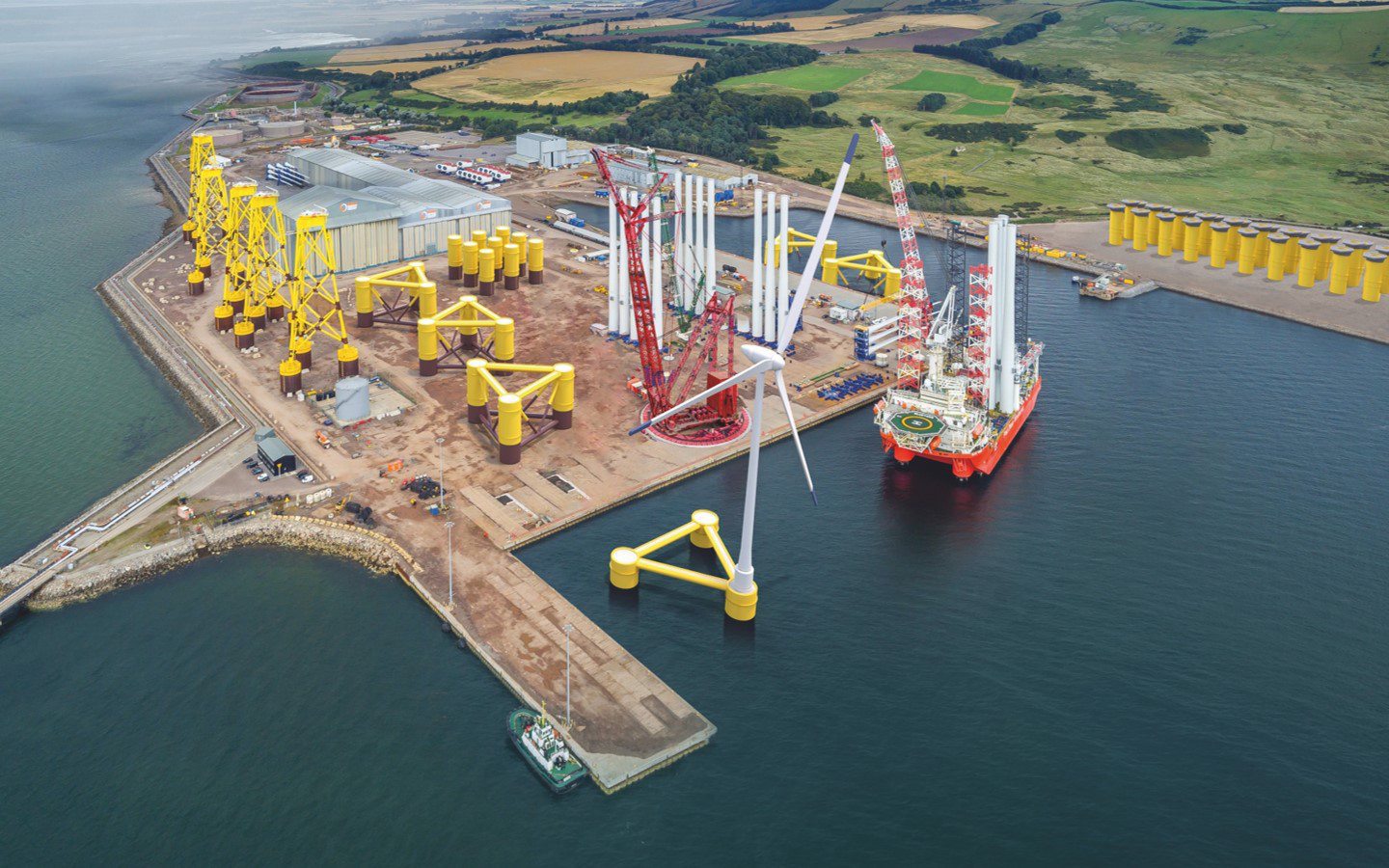Scotland’s energy minister Gillian Martin has said future commercial opportunities for the Grangemouth oil refinery site are “very exciting”, despite the looming loss of around 400 jobs.
Grangemouth owner Petroineos is planning to close Scotland’s only oil refinery later this year and transition the site into a fuel import terminal.
Petroineos – a joint venture between PetroChina and Ineos – has blamed market pressures and the energy transition for its decision to close the refinery.
Ahead of the closure, the Scottish and UK governments committed £1.6 million to ‘Project Willow’, which is assessing potential low-carbon options at Grangemouth.
Future industrial uses proposed for the site include the production of sustainable aviation fuel (SAF), as well as green hydrogen derivatives.
However, Martin warned much of the opportunity at Grangemouth, particularly around hydrogen production, hinges on Scotland’s Acorn carbon capture and storage (CCS) project receiving UK government funding as part of its Track-2 process.
Grangemouth future
The acting cabinet secretary for net zero and energy made the comments during a Holyrood committee meeting on the UK government’s GB Energy Bill.
Asked by Scottish Labour MSP Monica Lennon for an update on efforts to find a way forward for Grangemouth, and any potential role for GB Energy, Martin said she is due to review the results of the Project Willow study as early as next week.
“Once that’s reviewed and that study is published, it’s [the Scottish government’s] aim to work with the UK government [and] Petroineos, but also any potential investors that we have in the UK and Scotland on some of the opportunities that there will be for that site,” Martin said.
 © Supplied by ASV Photography Ltd.
© Supplied by ASV Photography Ltd.“There are about four or five particular streams of opportunity in terms of what that site could become that could be really exciting for the future of Scotland and the rest of the UK, and the workforce at Grangemouth.”
Grangemouth collaboration
Martin said in all her time in government, she had never “worked as closely with the UK government on anything else than I have on the Grangemouth situation”.
“I don’t think I’ve ever been as involved in anything that’s been as focused on a just transition, a practical just transition,” she added.
Martin said the Scottish government is aiming to entice investors to ensure the Grangemouth site can become “something that will be sustainably run into the future and bring massive economic benefit to the community”.
SNP MSP Kevin Stewart asked whether GB Energy could play a role in Scotland’s hydrogen sector.
In response, Martin said discussions with the UK government on hydrogen are focused on export infrastructure and certification standards rather than GB Energy.
“Now if GB Energy wants to do hydrogen projects… that’s a question for them for how they might do that,” Martin said.
“There’s a big opportunity in Grangemouth for the production of blue and then green hydrogen.
“A lot of that would be made more a lot more commercially viable if we had Track 2 status [for Acorn] on carbon capture and storage as well.”
GB Energy priorities for Scotland
Meanwhile, as the UK Labour government progresses its GB Energy bill through Westminster, Martin said Holyrood is hoping to see certain amendments included.
The Scottish government wants to see sections of the legislation updated to ensure the UK energy secretary must secure the “consent” of Scottish ministers on GB Energy’s strategic priorities relating to devolved matters, rather than simply “consult”.
Martin said without consent from Scottish ministers, there is a risk that GB Energy’s priorities could run counter to the Scottish government.
She also said she wants to ensure that GB Energy does not try to “reinvent the wheel” in Scotland in areas like community energy.
“I’m very keen that we are an equal partner in what GB Energy does in terms of the strategic actions that they take,” Martin said.
 © Supplied by Ross Creative Commun
© Supplied by Ross Creative Commun“[GB Energy] should not be necessarily competing… against other commercial operations, they have to be adding to what we already have in Scotland.
“What I want to see in those strategic priorities as the company develops is that they are providing additionality to what’s already in the energy sector.”
Prior to the general election last year, Labour leader Sir Keir Starmer said floating offshore wind would be a “priority” for GB Energy.
The Scottish government has already allocated almost 30 GW of floating wind capacity in Scottish waters to commercial developers as part of the ScotWind leasing round.
Martin said the Scottish government would like to see GB Energy prioritise investing in helping nascent technologies in Scotland, such as wave and tidal energy, reach commercial maturity.
Scottish Conservative MSP Douglas Lumsden asked whether the Scottish government had any plans to revive its own plans for a publicly owned energy company.
In response, Martin said: “It’s not something that we’re able to do with the current devolution settlement”.
It comes after the Welsh Labour government launched publicly owned renewable energy developer Trydan Gwyrdd Cymru in July last year.
Recommended for you

Death, taxes and the future of the North Sea





















